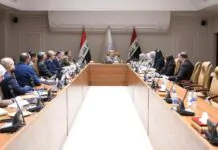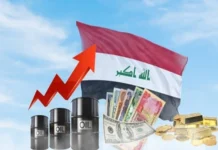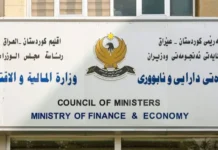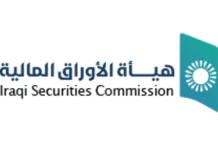Monetary Policy Raises The Value Of The Dinar And Reduces Reliance On The Parallel Market.
Economic 2025/05/11 Baghdad: Hussein Thaghab The Iraqi dinar has recently recorded strong performance against the dollar, driven by a series of monetary measures adopted by the Central Bank,
which have contributed to reducing demand for hard currency in the parallel market and enhancing the confidence of traders in official channels.
This improvement comes amid ongoing government efforts to consolidate financial stability and
stimulate business activity through effective monetary instruments and transparent and direct financing mechanisms.
Deputy Governor of the Central Bank of Kuwait, Dr. Ammar Hamad, confirmed to Al-Sabah that
this increase reflects the success of the monetary policy pursued by the bank in reducing reliance on the parallel market and providing safe and transparent sources of financing for foreign trade.
He explained that this policy has enabled the commercial family to obtain dollars through official channels that adhere to international standards, without having to resort to the unregulated market.
Hamad noted that the Central Bank continues to work toward consolidating the local banking system and raising its operational efficiency to levels consistent with international banking standards, making it a fundamental pillar in driving economic development in Iraq.
He added that the bank is adopting advanced mechanisms that enable banks to offer diverse banking products that support various economic sectors and facilitate financing and cash flow operations.
For his part, the Prime Minister’s Advisor for Financial Affairs, Dr. Mazhar Mohammed Salih, explained that a number of factors contributed to strengthening the value of the dinar, most notably the weak demand for the dollar in the parallel market, as a result of the Central Bank‘s policies regarding financing foreign trade for the private sector.
He explained that the bank strengthens Iraqi banks’ dollar balances through their correspondents abroad, especially banks with a high credit rating (AAA), which speeds up the execution of international transfers and reduces the need for dollars in the local market.
He also indicated that the move towards using alternative currencies such as the euro, yuan, dirham, and lira in banking transactions has helped reduce excessive reliance on the dollar.
Saleh also noted that enabling small businesses to access financing sources directly through Iraqi banks,
without costly intermediaries, has helped reduce operating costs and improved commercial efficiency,
as this segment represents approximately 60% of private sector trade.
He added that travelers can now easily obtain their foreign currency dues via payment cards at a subsidized exchange rate of 1,320 dinars to the dollar, in addition to the ability to receive dollars in cash at Iraqi airports, which has eased pressure on the parallel market.
In the same context, economic expert Nazir Al-Saadi emphasized that the money transfer services provided by the Central Bank have become safer and more effective,which has prompted business families to move away from the parallel market,
which is characterized by significant risks and high costs.
He explained that relying on official transfers not only ensures the safety of transactions,but also reduces the final cost of imports,which is positively reflected in the prices offered to consumers.
He added that random transfers from the parallel market often caused losses to importers due to failure to implement them or due to price fluctuations, while the Central Bank mechanism provides a stable financial system that preserves the value of the currency and reduces Opportunities for manipulation. https://alsabaah.iq/114242-.html
Arab Countries On The Gray List For Money Laundering… What About Iraq?
Economy 2025-05-12 | 2,734 views Asharq Al-Awsat revealed on Monday that seven Arab countries are on the gray list. The report emphasized that this does not mean they are directly involved in financial corruption, but rather serves as an international warning about the existence of systemic loopholes that could weaken the economy and threaten investor and market confidence.
This places the country under scrutiny, considering it an environment that could be exploited for money laundering or terrorist financing unless it swiftly implements strict legal and institutional reforms.
In the Arab region, several countries have entered this list, some of which have already left, while others remain for reasons ranging from weak legislation, weak banking oversight, and political instability.
This makes the issue more complex and impactful for the region’s economies, which are highly dependent on cross-border financial flows.
The grey list refers to countries placed on the Financial Action Task Force‘s (FATF) “enhanced monitoring list.”
The list includes countries with “strategic deficiencies” in their anti-money laundering, counter-terrorism financing, and proliferation regimes, but which have demonstrated a high-level political commitment to work with the FATF to implement a clear reform plan within a specific timeframe.
The Financial Action Task Force (FATF) is an intergovernmental body established in 1989at the initiative of the Group of Seven industrialized nations and headquartered in Paris.
It is concerned with setting standards and promoting the implementation of legal, regulatory, and practical measures to combat money laundering, the financing of terrorism, and the proliferation of weapons of mass destruction at the national and international levels.
*Arab countries on the list
As of the latest official update issued by the Financial Action Task Force in February 2025, the following countries from the Arab region are included on the “grey list”:
1. Algeria
Algeria was listed in October 2024 following a joint assessment with the Middle East and North Africa Financial Action Task Force (MENAFATF), due to weak risk oversight, the absence of an effective beneficial ownership framework, and a lack of suspicious transaction reports.
Algeria is implementing an action plan that includes strengthening financial oversight, developing a suspicious transaction reporting system, and updating the legal framework for targeted financial sanctions.
2. Lebanon
Lebanon was added to the list in October 2024 due to the collapse of its banking system and its increasing reliance on cash transactions, which reflects a lack of confidence in the banking system and makes it difficult to track cash flows, in addition to the lack of judicial independence and concerns about terrorist financing.
authorities are seeking The Lebanese to implement a comprehensive reform plan to strengthen the anti-money laundering and counter-terrorism financing system.
3. Syria
Syria has been on the list since February 2010 due to strategic deficiencies in combating money laundering and terrorist financing. Despite some improvements, Syria continues to cooperate with the Financial Action Task Force to address these deficiencies .
4. Yemen
Yemen was listed in February 2014 due to its inability to implement reforms due to the security situation, despite completing the agreed-upon action plan. However, Yemen continues its efforts to strengthen its anti-money laundering and counter-terrorism financing regime.
*Arab countries removed from the list
Three Arab countries have been removed from the “grey list” after implementing comprehensive
reforms to their anti-money laundering and counter-terrorism financing systems.
These countries are: the UAE, Morocco, and Jordan.
1. UAE
The UAE was placed on the “grey list” in March 2022 due to “strategic deficiencies” in its anti-money laundering and counter-terrorist financing regime, such as poor understanding of risks, limited use of financial information, and challenges in implementing sanctions.
The UAE was removed from the grey list on February 23, 2024, after implementing a series of institutional and legislative reforms, including the establishment of the Executive Office for Combating Money Laundering and Terrorist Financing to enhance national coordination, the establishment of a specialized court for financial crimes, and the updating of criminal laws and the imposition of stricter penalties.
The country also increased the pace of investigations and prosecutions and activated a system for reporting suspicious transactions.
FATF commended this progress, considering it sufficient to remove the UAE from the list.
2. Morocco
Morocco was placed on the “grey list” due to weak risk-based oversight, insufficient accuracy of beneficial ownership information for legal entities, limited diversity of suspicious transaction reports, and limited effectiveness of investigations and prosecutions.
Morocco was removed from the grey list in February 2023 after implementing a series of substantive reforms within the framework of the action plan agreed upon with the Financial Action Task Force.
The measures included strengthening the legal and regulatory framework for combating money laundering and terrorist financing, improving the effectiveness of investigations and prosecutions, updating the suspicious transaction reporting system, and enhancing international cooperation and the exchange of financial information.
3. Jordan
Gaps such as weak risk-based oversight, insufficient beneficial ownership data, inadequate prosecutions, and an ineffective financial sanctions regime have placed Jordan under enhanced FATF scrutiny.
After the country adopted reforms that included improving transparency in beneficial ownership data, strengthening investigations and prosecutions in money laundering cases, tightening oversight of non-profit organizations, and improving its targeted financial sanctions regime, Jordan was removed from the gray list in October 2023.
Listing: Punishment or Regulatory Measure?
Gray listing is not a penalty in the legal sense; rather, it is an international regulatory measure that indicates strategic deficiencies in a country’s
anti-money laundering and counter-terrorist financing (AML/CFT) systems.
However, despite its regulatory nature, it has quasi-punitive consequences, such as diminished investor confidence, tightened international banking supervision, and increased costs for financial transactions.
Listing obliges a country to implement an action plan within a specified period under FATF supervision and serves as an international warning requiring urgent reforms.
*What about Iraq ?
On August 20, 2024, Iraq‘s Anti-Money Laundering and Counter-Terrorism Financing Office announced that the country was no longer on the gray list for money laundering, following the establishment of updated, comprehensive, and confidential databases that meet international requirements.
, Hussein Al-Maqram, reported The office’s representative at the Central Bank of Iraq the
completion of the international mutual evaluation conducted by a team of international experts on Iraq.
The 14-month evaluation aimed to assess Iraq’s technical compliance with the legal framework,
regulations, instructions, and controls for combating money laundering and terrorist financing.
In a statement to the media, Muqrin explained that the international expert team evaluated the effectiveness of anti-money laundering and counter-terrorism financing systems by providing statistics and practical cases to demonstrate the extent to which the legislative framework is being implemented, in addition to conducting field visits.”
He added that “the evaluation report was discussed and approved by the Middle East and North Africa Financial Action Task Force (MENAFATF) last May,” noting that
“the initial results confirmed that the Republic of Iraq has moved away from inclusion on the gray list, and an action plan and recommendations were formulated by international evaluators to ensure compliance with international standards.”
For current and reliable Iraqi news please visit: https://www.bondladyscorner.com/





